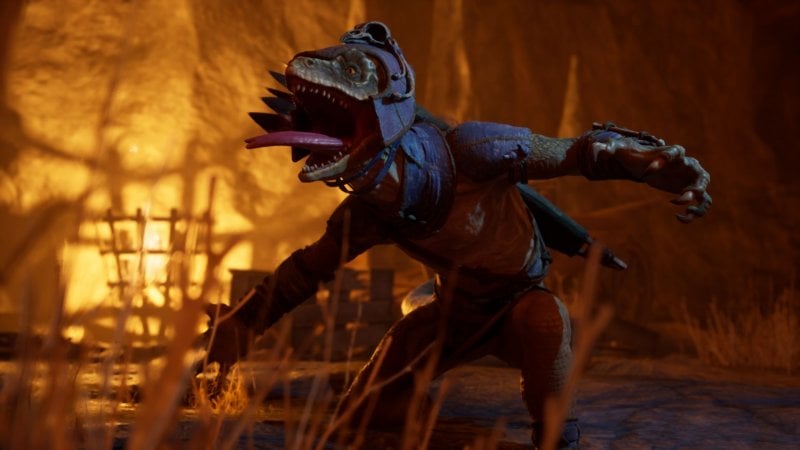Let's hope that next week Phil Spencer announces the death of the exclusives policy, at least for Xbox. It would be a huge step forward, from a conceptual point of view and beyond, for the industry as a whole.
That of exclusive it is an eminently commercial concept that has no value on a recreational level. It's a purchase lever, not a feature: I'm interested in game X, then I'll have to have a platform that can run it. Whether the platform in question is only the Scatostascion 6 or the BuBox 540½ is irrelevant for the game itself, unless it is a work aimed at hardware, i.e. best enjoyed only with certain peripherals (example: Half- Life: Alyx only makes sense with a VR headset).
A war without winners
Hardware manufacturers have been fighting over this for years. Already at the time of the very first consoles, such as the Atari 2600, there were those who understood that to boost console sales there was a need for titles that would interest the public. If the mass-acclaimed game is on my machine and not on rival machines, people will buy it, so I pay to have it exclusively. Nintendo with the NES implemented aggressive tactics to say the least to prevent some titles from reaching competing consoles and so it has been for all subsequent generations, including the one we are experiencing, despite the fact that over the years third-party publishers have increasingly distanced themselves from this system, because it is not very convenient for their business.
Like all economic policies, even that of total exclusivity is only possible in the presence of a market that supports it and, simply, the current market no longer supports it: production costs grow year after year, while the user base is stagnant . Furthermore, demand is being pressured by such a widespread supply that it has become difficult to focus on it. When a game to catch up i production costs must now sell almost ten million copies, which means you can no longer afford to aim for a narrow audience.
Xbox tried a new model, betting everything on subscription services with the Game Pass. Sustainable or unsustainable? Naive question. A product is sustainable if it respects the targets set in the planning phase. Let's say: 40 million subscribers were estimated in 5 years? Have they been reached? Then it is sustainable. Were they not reached? Then it might not be, or it might be less convenient than it seemed (I'm oversimplifying it, but the concept should be clear).
Is Xbox good or bad with current schedule? It's difficult to do the math without estimates. We know that Starfield reached a certain number of players, for example, but we don't know how many were estimated before launch, whether production costs were recovered, whether margins were considered acceptable, how much support for updates and future updates costs expansions and so on. In short, in general we lack too much data to make clear judgments on the success or otherwise of the game or on the sustainability of similar projects.
What we know, however, is that at some point something must not have gone as planned (not for Starfield in particular) and someone will have asked Spencer and his team to do more. As mentioned, Xbox is already a multiplatform publisher. In fact it is and only those who are obsessed with a dying model like that of exclusives at all costs have not noticed it. So it already has a large amount of products aimed at the other half of the console market sky, particularly after the acquisition of Activision Blizzard King. Furthermore, for years it has considered hardware as a secondary product, to be sold more for the presence of the brand than to make money, aiming above all at the affirmation of the ecosystem as a whole. What else could the next step be other than getting out of the console war completely? Continue a policy of total closure by pretending that a market that almost no longer exists is still alive? After all, does a game become uglier if a neighbor can also play it with a different console than their own? Avowedfor example, becomes less interesting because there is a possibility that it will arrive on PS5?
After all, this is the path, not only for Microsoft. Sony hasn't completely gotten there yet, but it's slowly already strengthening its offering on PC and there's talk of the arrival of a cloud application to enjoy some PlayStation games without necessarily having to buy a console. It will soon release a game on Game Pass at launch, so to speak.
The system of exclusives still works practically only for Nintendo because it did not run after the technological enhancement with Nintendo Switch, focusing everything on its intellectual properties, undoubtedly very strong, and on the sustainability of development. However, it would be foolish not to remember that after the collapse of the Wii U, Nintendo had certainly thought about expanding to other platforms, so much so that it had tried the mobile route, retracing its steps when the Nintendo Switch started selling like hotcakes. We can therefore assume that, in the event of failure or moderate success of the next console, on which development costs will still be higher than on Nintendo Switch, some openings may also come from Mario's house.
This is an editorial written by a member of the editorial team and is not necessarily representative of the editorial line of Multiplayer.it.
#Starfield #crossplatform #Xbox #games #Let39s #hope #Spencer #announces #death #exclusives

